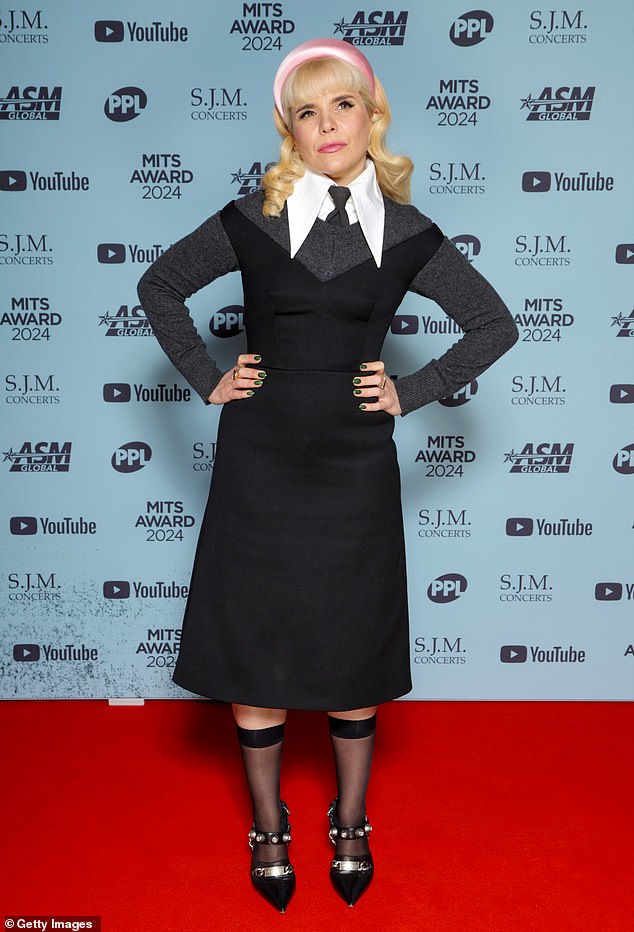Raj Kumar Jain | Managing Director

We aim to redefine the way people perceive socks
Bonjour, founded in 1988, is India’s first multinational socks brand, renowned for its high-quality products and extensive global reach. With over 500 computerised knitting machines and advanced technologies, Bonjour serves more than 16,000 retailers and 180 distributors across India, offering a range of socks, tights, handkerchiefs, and other garments. Speaking to Fibre2Fashion, Managing Director Raj Kumar Jain discusses the brand’s vision, marketing strategies, quality assurance, sustainability practices and future plans.
What significant shifts in consumer behaviour have you observed in recent years, and how should retail businesses adapt to these changes?
In the dynamic landscape of consumer preferences, we are keenly attuned to evolving trends within the socks market. With shifts in lifestyle choices, fashion sensibilities, and sustainability concerns, our brand remains agile in adapting to these changing consumer dynamics. We continuously conduct market research and consumer insights analysis to stay ahead of emerging trends. Additionally, we invest in innovation and product development to cater to evolving consumer demands, ensuring that our offerings resonate with contemporary lifestyles while upholding the quality and values our brand stands for.
Retail businesses must adapt to significant shifts in consumer behaviour by embracing agility and innovation. Understanding evolving consumer preferences, leveraging data-driven insights, and enhancing digital engagement are crucial. It is essential to personalise experiences, offer seamless omnichannel interactions, and respond swiftly to emerging trends. By fostering a customer-centric approach and integrating advanced technologies, retailers can stay ahead of the curve, build stronger connections with their audience, and turn challenges into opportunities for growth and differentiation.
What are the key challenges and benefits of implementing an effective omni-channel strategy in the retail industry?
Implementing an effective omni-channel strategy in retail presents both key challenges and benefits. Challenges include integrating diverse platforms, managing consistent messaging across channels, and ensuring seamless customer experiences from online to in-store. Retailers must also handle complex logistics and data synchronisation. However, the benefits are substantial. A well-executed omni-channel strategy enhances customer satisfaction by providing a cohesive shopping experience, drives brand loyalty, and increases sales by reaching consumers through their preferred channels. It also allows for better data collection and analysis, leading to more personalised marketing and improved inventory management. Ultimately, embracing omni-channel strategies enables retailers to stay competitive and responsive in a dynamic marketplace.
How can retailers optimise their supply chain operations to ensure efficiency, cost-effectiveness, and resilience in the face of disruptions?
Retailers can optimise their supply chain operations by leveraging advanced technologies and data analytics to enhance efficiency, cost-effectiveness, and resilience. Implementing real-time tracking systems and predictive analytics enables better demand forecasting and inventory management. Streamlining processes through automation and integrating end-to-end visibility helps in identifying and addressing potential disruptions quickly. Building strong relationships with diverse suppliers and adopting flexible sourcing strategies contribute to supply chain resilience. Additionally, investing in agile logistics and contingency planning ensures readiness for unforeseen challenges. By embracing these strategies, retailers can not only mitigate risks but also achieve operational excellence and maintain a competitive edge in a rapidly evolving market.
How is the retail industry addressing the growing demand for sustainability, and what best practices can be adopted to minimise environmental impact?
The retail industry is increasingly addressing the demand for sustainability by adopting eco-friendly practices and integrating sustainability into their core strategies. Key approaches include sourcing responsibly, reducing wastage, and improving energy efficiency across operations. Retailers are also investing in sustainable materials, such as recycled or organic fabrics, and enhancing transparency in their supply chains. Best practices involve setting clear sustainability goals, partnering with certified suppliers, and implementing comprehensive recycling and waste reduction programmes. Engaging consumers with educational initiatives about sustainable choices further supports these efforts. By prioritising these practices, retailers can significantly reduce their environmental impact while meeting the growing consumer expectations for eco-conscious products and practices.
How are emerging technologies like AI, AR, and blockchain transforming the retail industry, and what future advancements do you anticipate?
Emerging technologies like AI, AR, and blockchain are revolutionising retail by enhancing personalisation, streamlining operations, and ensuring transparency. AI personalises shopping experiences and optimises inventory, AR transforms how customers interact with products through virtual try-ons and immersive experiences, and blockchain secures transactions and verifies product authenticity. Looking ahead, AI will offer deeper insights and smarter customer interactions, AR will integrate more seamlessly into shopping environments, and blockchain will advance with smart contracts and greater traceability. Together, these innovations are setting the stage for a more dynamic, efficient, and customer-centric retail future.
What inspired the founding of Bonjour, and how has the brand’s vision evolved over the years?
Our journey began in 1988 with a vision to provide high-quality cotton and bamboo socks that not only offer comfort and functionality but also reflect individual style and personality. We aim to redefine the way people perceive socks, turning them from a mundane necessity into a fashion accessory that adds flair to any outfit. Our mission is to continuously innovate and create socks that meet the diverse needs and preferences of our customers while maintaining our commitment to quality and sustainability. Having diversified our product range into the apparel and innerwear segments, our current aim is to be a global leader in fashion-knit and fashion wear.
Could you share the key milestones in Bonjour’s journey from a local brand to becoming the first Indian multinational socks brand?
We started socks manufacturing in a rented factory in Delhi in 1988. In 1991, we officially launched the socks brand ‘Bonjour’ where we provided the best quality socks at affordable prices. Furthermore, in 2007, we inaugurated our first exclusive brand outlet. We launched a garment brand ‘VAMI’ by setting up a yarn plant. As of now, Bonjour serves more than 17,000+ retailers and over 180+ distributors pan-India and is known as the most versatile and the largest socks manufacturer having 300,000 sq. ft. of factory area. It has also expanded to 16+ exclusive brand outlets, spread over Delhi-NCR, Dehradun, and Ambala. The popularity of the organisation has been to such a great extent that its reach has touched internationally including the US, Gulf countries, and European markets. Our products are created through a highly integrated process using 500 advanced, fully computerised sock knitting machines, which collectively produce 100,000 pairs per day.
Bonjour has a diverse product range, including socks, -40°C socks, tights, caps, leggings, underskirts, and handkerchiefs. How do you ensure innovation across these different product lines?
Bonjour ensures innovation across its diverse product range, including socks, -40°C socks, tights, caps, leggings, underskirts, and handkerchiefs, by leveraging advanced technical input and high-quality raw materials. Each product undergoes meticulous processing to meet the precise needs of consumers, whether it is for fashion, comfort, or durability. By continuously integrating cutting-edge materials and innovative manufacturing techniques, Bonjour consistently delivers products that not only align with the latest fashion trends but also provide exceptional comfort and long-lasting wear, ensuring customer satisfaction across all its product lines.
Can you elaborate on the patented technologies and advanced manufacturing techniques that Bonjour uses, such as the N9 Silver Technology?
Bonjour’s dedication to innovation is exemplified through its use of patented technologies and advanced manufacturing techniques, such as N9 Silver Technology. This commitment to emerging technologies includes seamless knitting techniques, moisture-wicking fabrics, and antimicrobial treatments for odour control. These advancements enhance the comfort, performance, durability, and style of our socks.
Additionally, Bonjour employs soft toe closing with a special technique, ensuring all-day comfort, and sag-free technology, which guarantees a lifelong grip without leaving marks. These innovative approaches reflect Bonjour’s relentless pursuit of excellence in sock design and production.
Bonjour has established a presence in the United States, Gulf countries, and Europe. What were the biggest challenges you faced in entering these international markets?
Entering international markets like the United States, Gulf countries, and Europe posed significant challenges for Bonjour, primarily due to price competition from Chinese manufacturers. Despite our high-quality products being well-received, aligning our pricing strategies to remain competitive while maintaining our standards was a key hurdle.
How does Bonjour adapt its products and marketing strategies to cater to diverse cultural and consumer preferences in different regions?
Bonjour adapts its products and marketing strategies to diverse cultural and consumer preferences by utilising specialised marketing and selling software. This allows for customisation in colours and designs tailored to different markets. Additionally, Bonjour offers made-to-order products to meet the specific needs of each region, ensuring customer satisfaction worldwide.
Bonjour emphasises quality assurance and continuous innovation. Could you discuss the processes in place to maintain these high standards?
Bonjour emphasises quality assurance and continuous innovation through a rigorous process with eight checkpoints. These checkpoints scrutinise everything from raw materials to packing materials, ensuring strict adherence to our high standards. This disciplined approach guarantees the consistent quality and excellence that our customers expect.
With growing global concerns about sustainability, how is Bonjour incorporating eco-friendly practices into its manufacturing and supply chain?
Sustainability is at the core of our ethos. Our eco-friendly collection features socks made from organic cotton, recycled materials, and low-impact dyes, ensuring every step is a sustainable one. We are meeting the growing demand for sustainable and eco-friendly products by adopting environmentally responsible practices throughout our operations. One such product is Bonjour’s Bamboo Socks which are made from 100 per cent natural bamboo fabric as it uses organically grown bamboo fibres which provide exceptional softness and comfort with skin-friendly materials. This makes it a sustainable and eco-friendly product. Using bamboo is an environmentally conscious choice as it requires minimal resources for growth.
Could you explain Bonjour’s approach to B2B partnerships and how these relationships have evolved over time?
Bonjour’s approach to B2B partnerships has thrived by collaborating with large formal retail chains, the defence segment, and institutions with special requirements. These relationships have proven highly successful and satisfying, leading to significant growth over time, underscoring Bonjour’s commitment to meeting diverse business needs.
What are Bonjour’s future plans for further expansion, both in terms of product offerings and market reach?
Bonjour’s future expansion plans are poised to elevate both product offerings and market reach. We are set to introduce new collections, including fleece, leggings, gloves, caps, and undergarments, while also expanding our footprint both domestically and internationally.
Our focus will be on enhancing sustainability and deepening our market presence in tier II and III cities, where increasing buying power due to improved agricultural yields is creating new opportunities. By broadening our product range and penetrating these growing markets, Bonjour aims to spread its unique blend of style and comfort to an ever-expanding audience.
DISCLAIMER: All views and opinions expressed in this column are solely of the interviewee, and they do not reflect in any way the opinion of Fibre2Fashion.com.











